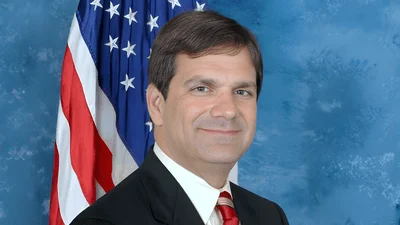Ambassador Lighthizer, I want to welcome you on behalf of the Committee Democrats. Today’s hearing is an opportunity for us to hear from you and for you to hear from us about all the activity happening in U.S. trade policy.
Over the past year, we have seen a lot of activity on trade from the Administration.
You are currently in the process of renegotiating NAFTA to update it and, more importantly, to rebalance it.
You are also renegotiating the U.S.-Korea Free Trade Agreement to improve it and to ensure that it delivers more reciprocal outcomes for U.S. workers, exporters, and businesses.
The Administration has recently decided to impose tariffs on steel and aluminum imports under Section 232 and is currently in the process of deciding on country exemptions and product exclusions.
And as we are reading in news reports, in a matter of days, the Administration will announce its findings in the Section 301 investigation into Chinese IP abuses and may also be prepared to impose substantial tariffs on imports from China.
The President tapped into raw feelings in some important communities about our economy and our trade policies. We have seen in the past months that this Administration and you personally, Amb. Lighthizer, have not been shy about challenging the status quo.
For many of us, we have taken notice of the promises that the Administration has made to improve U.S. trade policy and to make it work for all Americans.
Many of us have also been skeptical of those promises, because they are big promises and we have heard them before.
But we have seen evidence of your commitment. For example, we hear you when you say that your task is not just to update NAFTA, but to fundamentally re-structure it to fix important flaws of the original agreement - flaws that prevented Members of Congress like me from supporting it.
In the tariffs on steel and aluminum imports, we recognize the intention of providing much-needed relief to industries and workers that have called for action for a very long time.
But we also have a lot of questions and are watching closely to determine whether the promises this Administration has made will actually be delivered. Whether that is in NAFTA, the 232 tariffs, the Korea agreement, or the China 301 investigation.
Finally, in the bigger picture, I think it should be clear to all of us that some of the greatest challenges facing our economy and our values are being posed by countries that rely on heavy state intervention and do not operate on market principles.
We should all be on the same team in taking on those challenges. In fact, if we want to be really effective, it seems to make sense that we should build that team beyond Democrats and Republicans to other countries and economies.
I look forward to hearing from you today about your vision and plan for delivering this Administration’s promises on trade; about how we take on global competitive challenges effectively; and about how the Administration partners with Congress.








